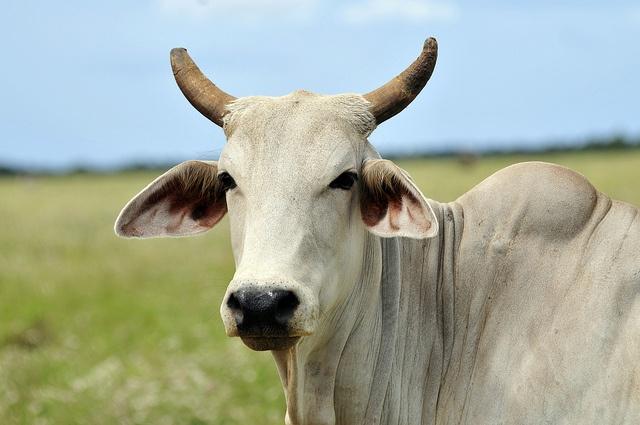
We have long heard the argument that society should move to a plant-based diet in order to save the planet. The real culprit, in the view of many environmentalists, is beef. The industry has been called the “new SUV,” over its links to climate change, and criticized for using far too much land to produce protein that a growing world increasingly demands. Therefore, much of the narrative we hear urges us to eschew meat, especially beef, in order to mitigate climate change risks and heal the planet.
Recent studies, however, suggest that including some meat in the diet may actually be the most responsible approach if we are going to feed the planet sustainably and responsibly. True, the evidence often supports the assumption that many citizens in wealthier nations consume far more protein than necessary, with meat often the biggest culprit.
But some research indicates that some meat in the diet could be all right. In fact, meat could be necessary if the planet is going to feed a growing population during the next few decades.
One recent study, published in the anthropocene science journal Elementa, posits that some diets with low to moderate amounts of beef and other livestock meats made the best use of land. And in a nod to vegetarians, this research posits that a plant-based diet which includes dairy products could be the most efficient way of eating overall.
Part of the issue, say the study’s authors, is that many consumers -- and even scientists -- consider land dedicated to the production of food as an aggregate. But across the world, land on which food crops are raised actually varies. Cultivated cropland is land on which seasonal crops such as vegetables, fruits, nuts and legumes are raised. Perennial cropland includes farms on which grasses such as hay are produced.
Then there is pasture land, which is generally located in areas where the farming of crops is not feasible. Examples include wide swathes of the Canadian prairies or northwest Scotland, where the soil is too acidic and climate too inhospitable to the cultivation of crops.
Another recent study out of the Netherlands suggests improved efficiencies and a shift in how livestock are fed could supply about a third of the world’s protein with animal-based products – without any further competition for land between what is grown for feed and what would be needed for food production. In order for such a scenario to occur, however, the world would have to change how cattle and other livestock are fed.
This study’s author, Hannah van Zanten, said the answer can be found in food waste, byproducts from food production, biomass and even insects, as they have a low feed-conversion ratio and can be produced relatively quickly. Such a transformation within the global beef supply chain would be a Herculean task, however, as farmers of grasses such as hay and alfalfa would have to be convinced to grow new crops. And in any event, the efficiency of North American cattle ranchers has long relied on feeding cattle the most efficient blend of grasses – which reduces the time it takes to fatten cattle and also results in fewer greenhouse gas emissions into the atmosphere.
But is the global beef industry really the bogeyman many make it out to be? At last week’s Global Conference on Sustainable Beef, the event’s keynote speaker, Professer David Hughes, made the case that beef will be a niche product in the near term. The rise of aquaculture, along with the relative efficiency of poultry raising, means fish and chicken will likely remain the preferred sources of animal protein in the developing world. And in North America, consumers have changed their eating habits after four decades of nutritionists lecturing us about the perceived health risks of eating beef. Despite the most recent uptick in beef consumption in North America, current trends suggest beef will be more of an occasional treat than the staple it was during our grandparents’ generation.
Amongst all the conflicting science, what is clear is that the beef industry is changing because it knows it must. As Dr. Hughes reminded his audience, there will be no premium for being “green.” But if the beef industry does not change their ways, there will be a serious discount -- as in, consumers who eschew beef for other sources of protein. The challenge the beef industry faces is that it must take successes in efficiency and sustainability in North America and apply them in major beef-producing countries such as India, Brazil, Pakistan and Colombia – and then the world’s meatpackers will have an even stronger argument in making their case that they can play a vital role in feeding a rapidly growing world.
Image credit: Neil Palmer/Flickr

Leon Kaye has written for 3p since 2010 and become executive editor in 2018. His previous work includes writing for the Guardian as well as other online and print publications. In addition, he's worked in sales executive roles within technology and financial research companies, as well as for a public relations firm, for which he consulted with one of the globe’s leading sustainability initiatives. Currently living in Central California, he’s traveled to 70-plus countries and has lived and worked in South Korea, the United Arab Emirates and Uruguay.
Leon’s an alum of Fresno State, the University of Maryland, Baltimore County and the University of Southern California's Marshall Business School. He enjoys traveling abroad as well as exploring California’s Central Coast and the Sierra Nevadas.














